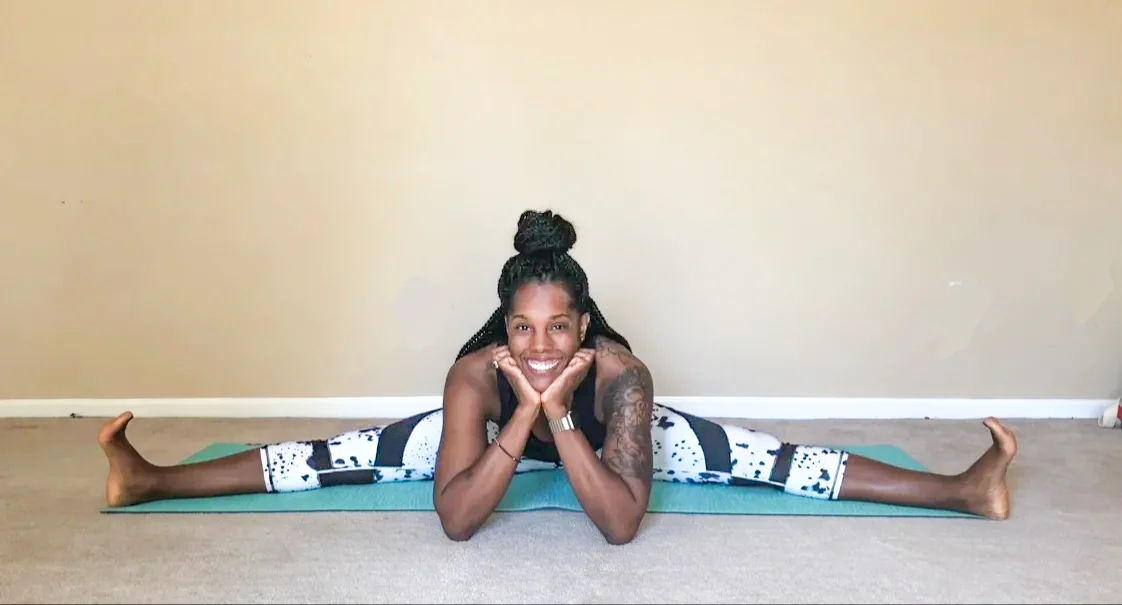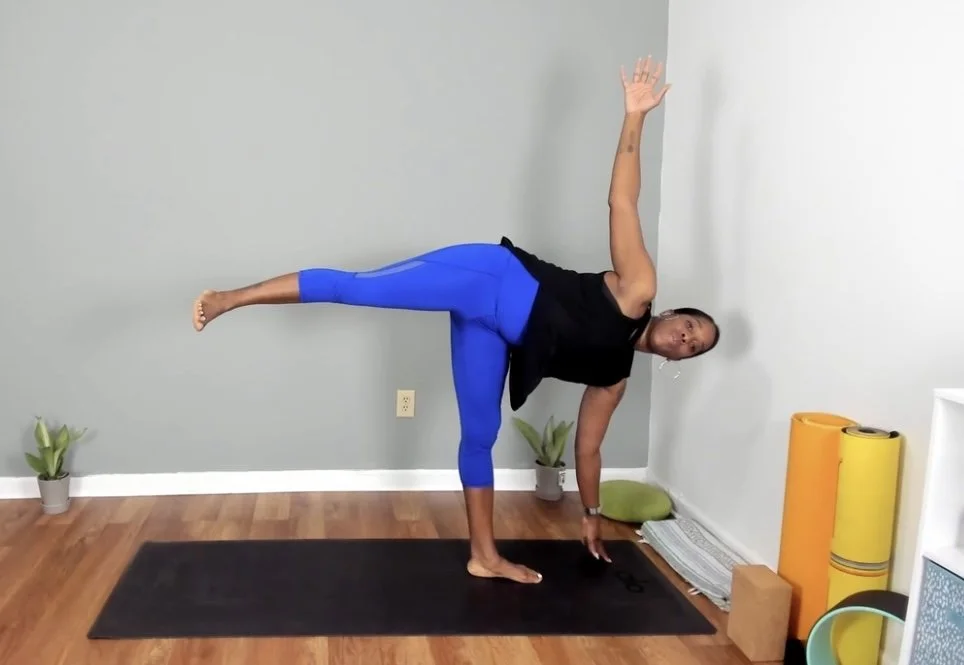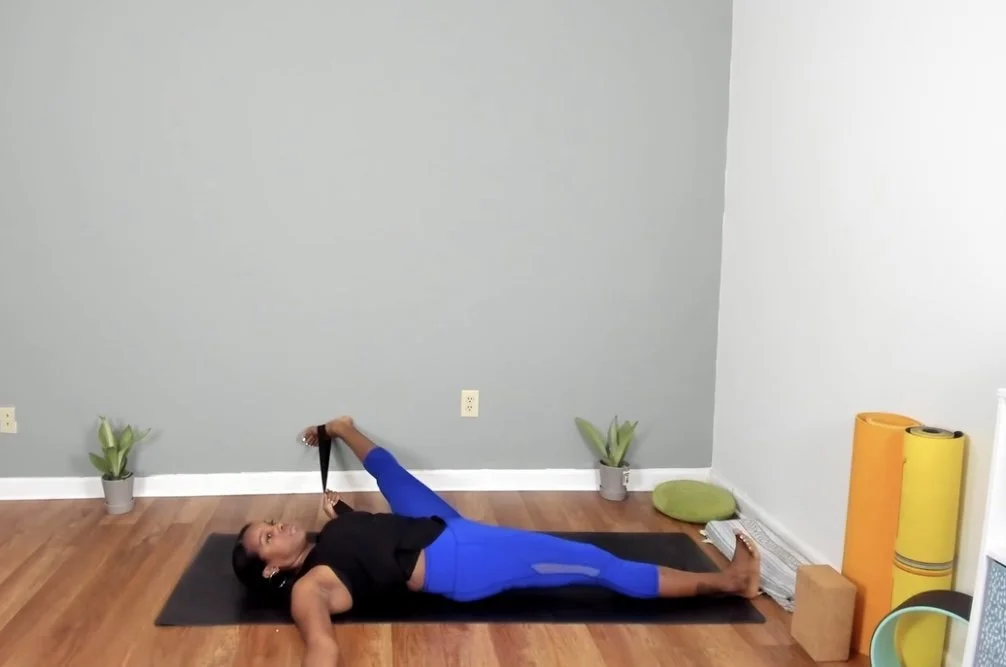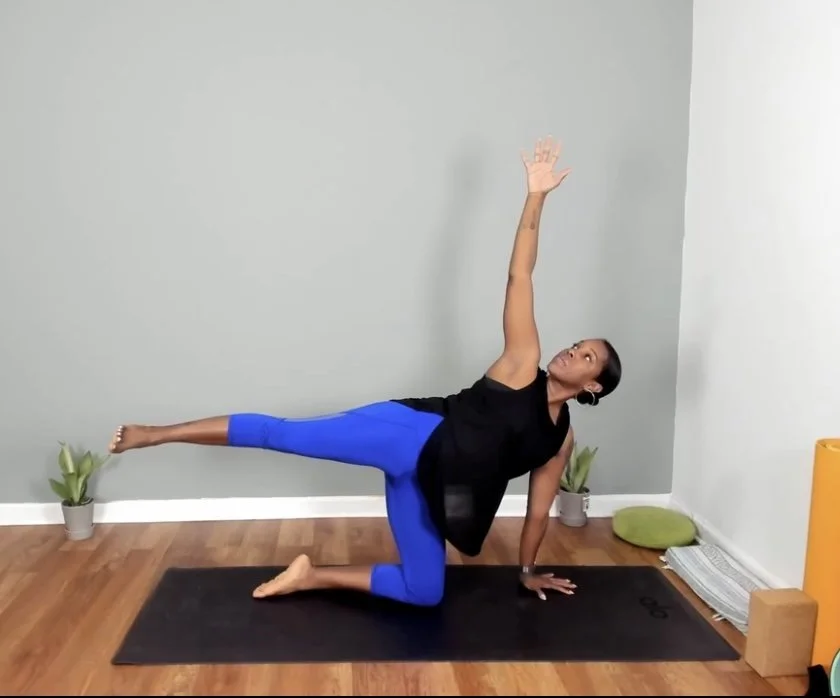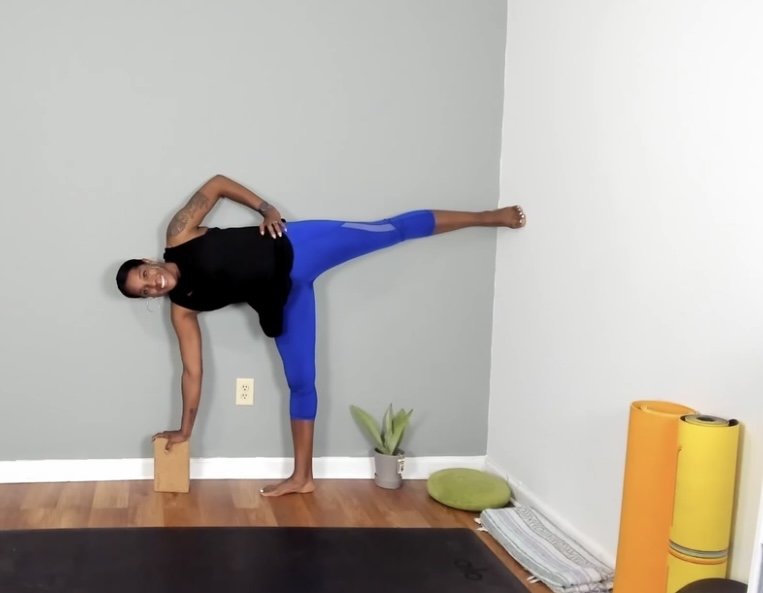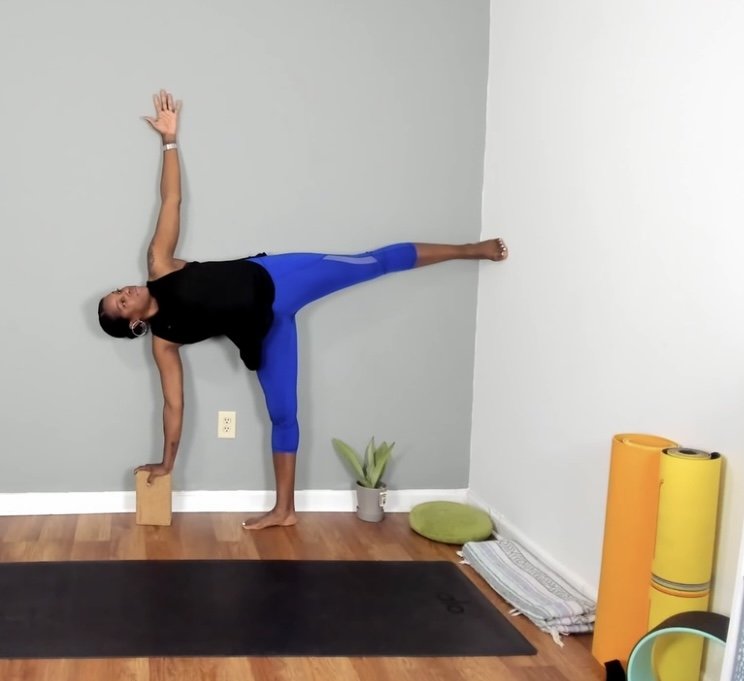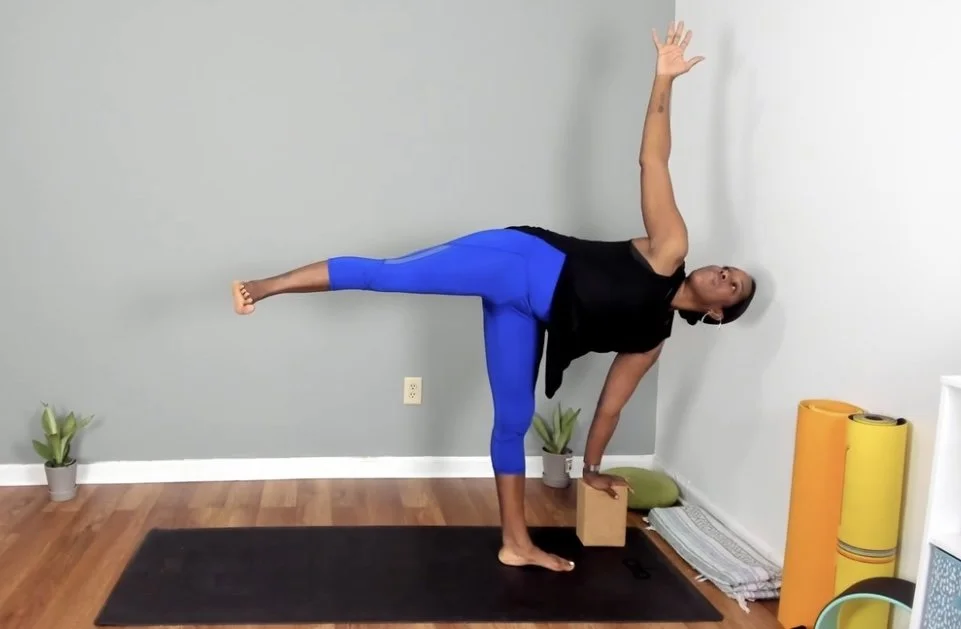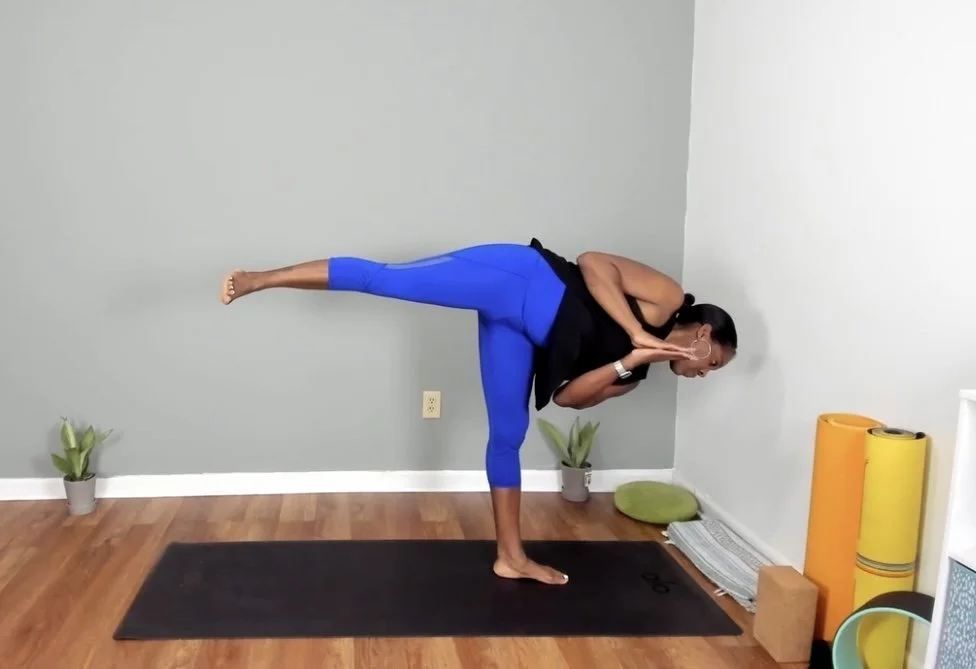Half moon pose is a standing yoga posture that challenges both the body and mind to find balance. This posture helps to strengthen the standing leg and ankles, as well at the very important glute muscles of the extended leg. Let’s get to know this fun pose a little bit more.
The common name for the posture is Half Moon Pose, and the Sanskrit name is Ardha Chandrasana. First, we will break down the sanskrit meaning of the Pose:
Ardha: Half
Chandra: Moon
Asana: Posture
Risks/ Contradiction
Knee Injuries/ Knee instability
Shoulder injuries
Plantar fasciitis, sprained ankle, or other knee injuries
Step-by-step
Take a wide leg stance facing the long edge of the mat.
Bend the right knee stacking the knee above the right ankle; Pivot the left foot so that it is somewhat parallel to the back edge of the mat
Extend the arms out to the side at shoulder height; relax the shoulders away from the ears; Gaze over the right middle finger (Warrior 2)
Begin straightening the right leg without locking into the knee; extend the right arm forward, keeping both sides of the waist long.
Release the right hand down to land on the front shin, a block, or fingertips to the floor. The left arm reaches to the sky; opening up the chest and torso towards the left side of the mat (Triangle Pose)
Bring the left hand to rest on the top hip. Bend the right knee and bring the front hand forward and to the right of the right foot, either using the block or fingertips to the mat
Walk the back foot forward until you can shift the weight to the right leg
Slowly lift the back leg; keeping the left foot facing the left side of the mat and hips stacking on top of each other
Choose where you would like to gaze. You can gaze toward the floor, to the side, or up. Optional: extending the left arm up to the sky or playing with any other variations
Gently bring a bend to the front knee lowering the back leg back down to the mat. Coming back into triangle pose and warrior 2, Repeat on the other side.
Things to watch out for
Keep the front foot facing forward
Do not lock into the standing knee
Keep the top hip (externally rotated)stacked on top of the bottom hip
If there is any tension keep the gaze down towards the mat
variations
Reclined Hand to Big Toe
Supported Plank Variation
Using the wall behind you and maybe pressing the back heel into the wall
Use a block under supporting hand
Fingertips of the supporting hand on the floor
Floating the supported hand off of the block or mat
Bending the top knee and reaching the top hand back to catch the ankle or foot (Chapasana)
Below you will see some images of just a few of the variations of Half Moon

